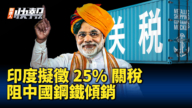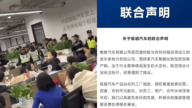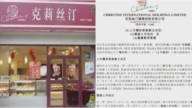【新唐人2013年11月25日訊】中共央行連續開展逆回購操作,淨投放規模達到590億元。業內人士認為,擴大實施逆回購規模有利於平抑眼前資金波動,防止市場恐慌情緒的發生和蔓延。不過專家指出,中國金融危機正在逼近,在當今通貨膨脹高漲的情況下,繼續放水,會導致通貨膨脹繼續上升,民怨沸騰,是死路一條。
11月19號,中共央行已經淨投放350億元,21號,央行再次重啟14天期逆回購操作,投放資金330億元,由於上週到期逆回購回籠資金90億元。等於上週三天內,央行通過公開市場操作,向市場投放了590億元資金。
上週, 銀行間市場呈現資金價格也呈現出快速上升趨勢。以7天質押式回購為例,利率從週二的3.5989%,連續升值到週五的5.4470%高位。
同樣呈現緊張的還有債市的資金面,進入今年10月以來,10年期國債收益率一反常態迅速攀升,11月18號,10年國債中債參考估值為4.6619%,已經創出了2005年3月以來的新高。 20號,收益率攀升至4.7%,再次創出新高。
大陸金融投資顧問鄭先生:「銀行缺錢,市場缺錢,實體經濟,民營企業那邊都缺錢,市場面這麼緊繃,政府說要製造一個繁榮的預期和景象,然後吸引外資和民間的資本。」
「興業銀行」首席經濟學家魯政委向大陸《財經網》記者表示,邁向持續復甦的反轉仍未到來。
11月9號,中共國家統計局公布10月份經濟數據,消費者物價指數(CPI)再破警戒線創8個月新高,其中鮮菜價格大漲31.5%,通貨膨脹嚴重。
美國南卡羅萊納大學艾肯商學院教授謝田:「對銀行來說,資金斷缺和壞賬上升,銀行破產的危險性,越來越大了,沒有其他辦法,只能繼續放水,可以預計通貨膨脹會加快的進一步增長。通貨膨脹這麼嚴重,它再放水的話,實際是一種自殺的行為。」
目前,人民幣對美元實行單邊升值,據統計,在過去8年時間,人民幣對美元中間價纍計升值了34%,人民幣名義和實際有效匯率,纍計升值29%和38%。
研究表明,人民幣每升值1%,棉紡織、毛紡織、服裝行業的利潤率將下降3.19%、2.27%和6.18%。人民幣升值對出口企業簽約和利潤都造成較大的負面影響。人民幣短期快速升值甚至導致「有單不敢接」現象嚴重,出口利潤進一步被壓縮,中小企業出口受到嚴重衝擊。
大陸經濟學者金融投資顧問鄭志遙向《新唐人》表示,由於過去幾年,政府管的太多,導致經濟與貨幣的風險正在逐步發酵。
鄭先生:「我們從股市可以看得出來,股市是一個國家實體經濟的晴雨表,我們的股市裡面,你沒看到嗎,全是靠題材股,和消息、和政策,過剩產能很嚴重,鋼鐵是越虧損越生產,越生產越虧損,不生產怎麼辦,立刻破產,到時候造成的惡果,就是銀行企業很多的問題要出現。」
17號,中共央行研究局首席研究員鄒平座指稱,中國金融結構不斷惡化,有三重危機正逼近中國。不過鄒平座表示,中國的可能性金融風險並不表現於總量方面,最大的風險潛伏於結構與體制之中。
鄭先生:「現在我們的經濟泡沫、房地產的泡沫、潛存的經濟危機步步來臨。而腐敗已經影響到這個根基了,同時還有環境污染,呼吸的空氣,你吃的水,你的土壤都被惡化了。怎麼辦啊!已經被逼到絕路上去了。」
11月20號,中共中央財經領導小組辦公室巡視員方星海,出席「財經年會2014」時,提出當前金融市場的四大風險,可能導致一些中小銀行和金融機構破產。這四大金融風險表現為,流動性的風險,利率風險,資產質量風險,以及信託理財、委託貸款和影子銀行的產品帶來的風險,都會回到銀行中來,最終可能導致中小銀行倒閉。
採訪編輯/劉惠 後製/蕭宇
China’s Central Bank Faces Financial Crisis
China’s Central Bank is trying to carry out reverse repo
operations, and net investment reaches 59 billion yuan.
Financial professionals believe large scale reverse repurchase
helps to stabilize fluctuations in the market and prevent panic
from spreading within the market.
However, experts point out that China’s financial crisis is
approaching.
By pouring in more money during rising inflation it will
lead to higher inflation and more complaints from people.
On Nov. 19, the Central Bank has put in 35 billion yuan, and
two days later, restarted two weeks of reverse repo operations, investing another 33 billion yuan.
Last week, it spent 9 billion in repo operations.
Altogether, the Central Bank has added 59 billion to the
market in three days.
Last week, the inter-bank money market showed a rapid rise.
For example, with seven days pledged repo, the interest rate
of 3.5989% on Tuesday rose to 5.4470% on Friday.
Meanwhile, tight bond funds also appeared from the start
of October this year.
10-year bond yields climbed rapidly to
4.6629%, a new high since March 2005.
On Nov.20, they climbed to 4.7%, another new high.
Mr. Zhheng, a financial consultant: “Banks, money markets,
and private enterprises are all short of money.
But our government wants to create a scene of prosperity to
attract foreign investment and capital from private sectors."
Lu Zhengwei, chief economist from X. Y. Bank told a
Financial Network reporter that reversing towards a sustained
recovery is not yet here.
On Nov. 9, the National Bureau of Statistics announced that
according to the economic data of October, the CPI (consumer
price index) broke a warning line, hitting a 8-month high, and
fresh vegetables rose by 31.5%, indicating a serious inflation.
Xie Tian, professor, university of South Carolina Aiken
School of Business: “For banks, lack of funds and rising
bad debt increase likelihood of bankruptcy.
The government has no other option but to add more money.
It can be expected to see inflation accelerate further.
If it continues to add money under severe inflation,
it will be a suicidal act."
Currently, the appreciation of RMB against the U.S. dollar
is only unilateral.
According to statistics, in the past eight years, central parity
of RMB against the U.S. dollar has appreciated by 34%.
RMB, in nominal and effective exchange rate, has appreciated
29% and 38%.
Research shows that every 1% appreciation of RMB causes
profit margins to decline 3.19%, 2.27% and 6.18% in cotton,
wool textiles and apparel industry respectively.
RBM appreciation causes greater negative impact on exports
and corporate profits.
Short-term rapid appreciation of RMB leads to fear of taking
contracts and results in further shrinkage of profit margins.
Small and medium enterprises are seriously
impacted by it.
Chinese economist and investment consultant
Zheng Zhiyao told NTD that the Chinese government
has intervened too much in the past several years,
causing economic and monetary risks to gradually intensify.
Mr. Zheng: “The stock market is like a barometer,
and from it we can see a country’s real economy.
In our [China’s] stock market, can’t you see,
it all relies on China concepts stocks, news and policies.
The excess capacity is very severe.
The greater the iron and steel deficit,
the more they produce.
The more they produce, the greater the deficit.
What happen if they don’t produce? It will bankrupt.
As a result, many problems have appeared in banking sectors."
On Nov. 17, Zou Pingzuo, chief researcher at People’s
Bank of China, says China’s financial structure
is constantly worsening, and a triple crisis is approaching.
He says that the possibility of financial risk is not
reflected in the overall volume.
The biggest crisis is hidden in the structure and the system.
Mr. Zheng: “Our economic bubble, real estate bubble and
hidden economic crisis are just around next corner.
Meanwhile, corruption has affected the foundation.
On top of it, environmental pollution of the air, water and soil
are all worsening.
What can we do?! We’ve been forced into a dead end."
On Nov. 20, Fang Xinghai, inspector for
the Leading Group for Financial and Economic Affairs
attended the 2014 Caijing Annual Conference.
Fang said that the current four major risks in the
financial market will likely cause bankruptcy to medium and
small sized banks and financial institutions.
The four crises manifested in a liquidity risk, interest rate risk,
asset quality risk and risks brought by trust management,
entrusted loans and products from shadow banks.
All such risks fall upon banks, and may trigger
small and medium banks to go bankrupt in the end.
Interview & Edit/LiuHui Post-Production/XiaoYu




























